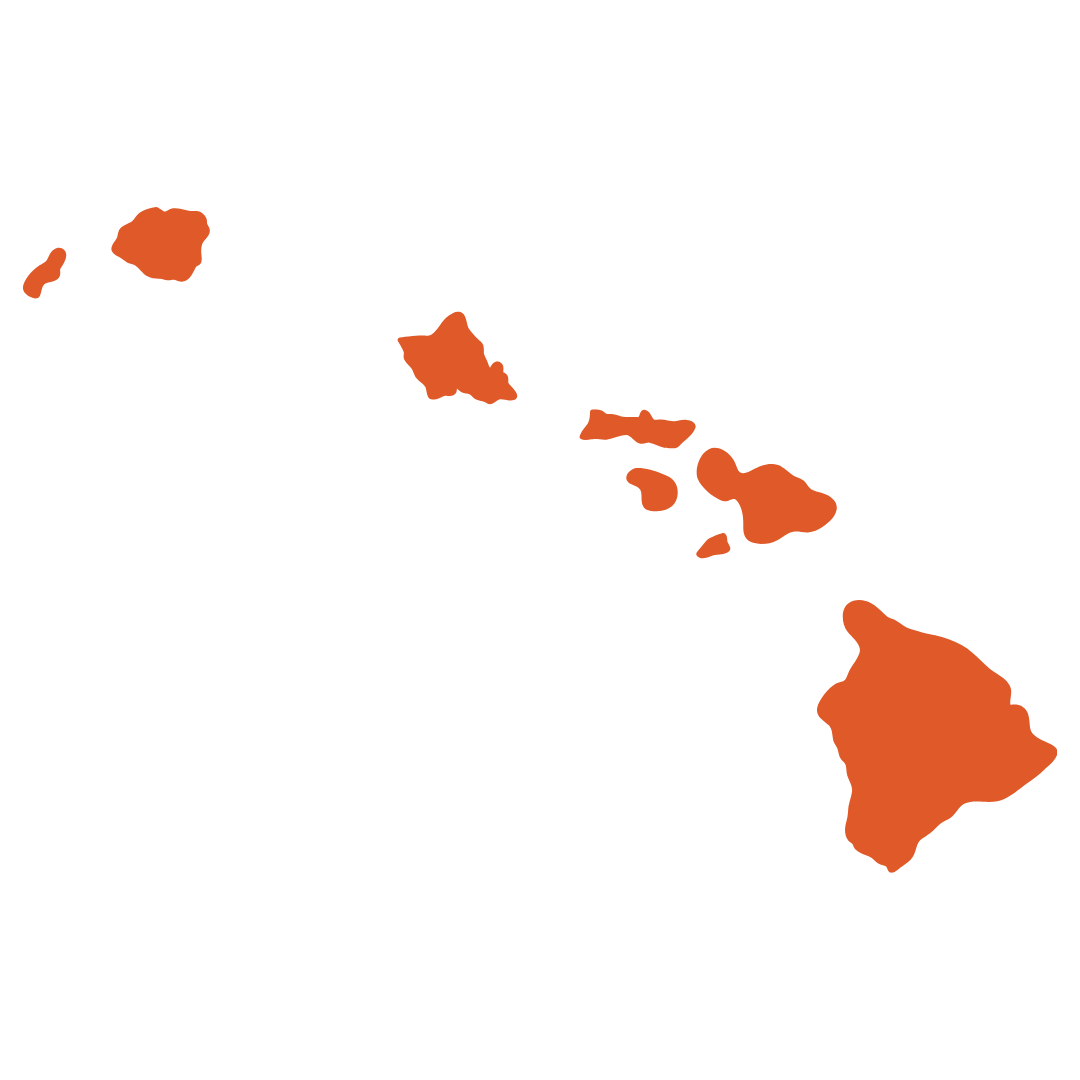Nationwide Impact
24 million Americans rely on enhanced premium tax credits†.
On average, premiums will increase 93%† if the tax credits are allowed to expire, and an estimated 3.8 million Americans† will go uninsured. Among those at risk of skyrocketing rates and losing coverage altogether are 4.2 million small business owners and self-employed workers, 1.6 million children, and 1 in 4 individuals with chronic conditions.†
A couple in their early 60s earning about $80,000 per year would see their annual health insurance premium increase by an average of $17,500. To keep their coverage, they could have no choice but to incur debt or forego medical care to reduce expenses.
Learn more about the impact of enhanced premium tax credits in your state.
Alabama
- 375,000 Alabama residents rely on enhanced premium tax credits†.
- An Alabama couple in their early 60s earning about $82,800 per year would see their annual health insurance premium increase by an average of $20,083†. To keep their coverage, they could have no choice but to incur debt or forego medical care in order to reduce expenses.
- If enhanced premium tax credits expire, Alabama is projected to lose 9,989 jobs. By 2026, the state’s GDP will decline by $1.1 billion, with total economic output dropping by $1.9 billion. These losses would lead to a $75.6 million reduction in state and local tax revenues.†
Alaska
- 23,000 Alaska residents rely on enhanced premium tax credits†.
- An Alaska couple in their early 60s earning about $103,500 per year would see their annual health insurance premium increase by an average of $44,448†. To keep their coverage, they could have no choice but to incur debt or forego medical care in order to reduce expenses.
- If enhanced premium tax credits expire, Alaska is projected to lose 725 jobs. By 2026, the state’s GDP will decline by $94.9 million, with total economic output dropping by $151.9 million. These losses would lead to a $4.2 million reduction in state and local tax revenues.†
Arizona
- 308,000 Arizona residents rely on enhanced premium tax credits†.
- An Arizona couple in their early 60s earning about $82,800 per year would see their annual health insurance premium increase by an average of $13,005†. To keep their coverage, they could have no choice but to incur debt or forego medical care in order to reduce expenses.
- If enhanced premium tax credits expire, Arizona is projected to lose 5,280 jobs. By 2026, the state’s GDP will decline by $653.1 million, with total economic output dropping by $1.1 billion. These losses would lead to a $41.4 million reduction in state and local tax revenues.†
Arkansas
- 145,000 Arkansas residents rely on enhanced premium tax credits†.
- An Arkansas couple in their early 60s earning about $82,800 per year would see their annual health insurance premium increase by an average of $16,282†. To keep their coverage, they could have no choice but to incur debt or forego medical care in order to reduce expenses.
- If enhanced premium tax credits expire, Arkansas is projected to lose 3,303 jobs. By 2026, the state’s GDP will decline by $362 million, with total economic output dropping by $625.8 million. These losses would lead to a $23.3 million reduction in state and local tax revenues.†
California
- 1,554,000 California residents rely on enhanced premium tax credits†.
- A California couple in their early 60s earning about $82,800 per year would see their annual health insurance premium increase by an average of $17,808†. To keep their coverage, they could have no choice but to incur debt or forego medical care in order to reduce expenses.
- If enhanced premium tax credits expire, California is projected to lose 6,547 jobs. By 2026, the state’s GDP will decline by $950.2 million, with total economic output dropping by $1.5 billion. These losses would lead to a $73.1 million reduction in state and local tax revenues.†
Colorado
- 183,000 Colorado residents rely on enhanced premium tax credits†.
- A Colorado couple in their early 60s earning about $82,800 per year would see their annual health insurance premium increase by an average of $15,847†. To keep their coverage, they could have no choice but to incur debt or forego medical care in order to reduce expenses.
- If enhanced premium tax credits expire, Colorado is projected to lose 2,555 jobs. By 2026, the state’s GDP will decline by $322.8 million, with total economic output dropping by $522 million. These losses would lead to a $20.2 million reduction in state and local tax revenues.†
Connecticut
- 112,000 Connecticut residents rely on enhanced premium tax credits†.
- A Connecticut couple in their early 60s earning about $82,800 per year would see their annual health insurance premium increase by an average of $28,100†. To keep their coverage, they could have no choice but to incur debt or forego medical care in order to reduce expenses.
- If enhanced premium tax credits expire, Connecticut is projected to lose 593 jobs. By 2026, the state’s GDP will decline by $82.6 million, with total economic output dropping by $129.3 million. These losses would lead to a $7 million reduction in state and local tax revenues.†
Delaware
- 40,000 Delaware residents rely on enhanced premium tax credits†.
- A Delaware couple in their early 60s earning about $82,800 per year would see their annual health insurance premium increase by an average of $20,163†. To keep their coverage, they could have no choice but to incur debt or forego medical care in order to reduce expenses.
- If enhanced premium tax credits expire, Delaware is projected to lose 768 jobs. By 2026, the state’s GDP will decline by $95.2 million, with total economic output dropping by $153.4 million. These losses would lead to a $6.1 million reduction in state and local tax revenues.†
District of Columbia
- 3,000 D.C. residents rely on enhanced premium tax credits†.
- A D.C. couple in their early 60s earning about $82,800 per year would see their annual health insurance premium increase by an average of $14,680†. To keep their coverage, they could have no choice but to incur debt or forego medical care in order to reduce expenses.
- If enhanced premium tax credits expire, D.C. is projected to lose 51 jobs. By 2026, the state’s GDP will decline by $7.9 million, with total economic output dropping by $12 million. These losses would lead to a $500,000 reduction in state and local tax revenues.†
Florida
- 4,089,000 Florida residents rely on enhanced premium tax credits†.
- A Florida couple in their early 60s earning about $82,800 per year would see their annual health insurance premium increase by an average of $19,212†. To keep their coverage, they could have no choice but to incur debt or forego medical care in order to reduce expenses.
- If enhanced premium tax credits expire, Florida is projected to lose 49,232 jobs. By 2026, the state’s GDP will decline by $5.5 billion, with total economic output dropping by $9.5 billion. These losses would lead to a $301.4 million reduction in state and local tax revenues.†
Georgia
- 1,245,000 Georgia residents rely on enhanced premium tax credits†.
- A Georgia couple in their early 60s earning about $82,800 per year would see their annual health insurance premium increase by an average of $18,056†. To keep their coverage, they could have no choice but to incur debt or forego medical care in order to reduce expenses.
- If enhanced premium tax credits expire, Georgia is projected to lose 28,368 jobs. By 2026, the state’s GDP will decline by $3.3 billion, with total economic output dropping by $5.5 billion. These losses would lead to a $212.7 million reduction in state and local tax revenues.†
Hawaii
- 18,000 Hawaii residents rely on enhanced premium tax credits†.
- A Hawaii couple in their early 60s earning about $95,200 per year would see their annual health insurance premium increase by an average of $17,044†. To keep their coverage, they could have no choice but to incur debt or forego medical care in order to reduce expenses.
- If enhanced premium tax credits expire, Hawaii is projected to lose 143 jobs. By 2026, the state’s GDP will decline by $19.3 million, with total economic output dropping by $30.4 million. These losses would lead to a $1.7 million reduction in state and local tax revenues.†
Idaho
- 90,000 Idaho residents rely on enhanced premium tax credits†.
- An Idaho couple in their early 60s earning about $82,800 per year would see their annual health insurance premium increase by an average of $14,855†. To keep their coverage, they could have no choice but to incur debt or forego medical care in order to reduce expenses.
- If enhanced premium tax credits expire, Idaho is projected to lose 2,461 jobs. By 2026, the state’s GDP will decline by $286.2 million, with total economic output dropping by $481.1 million. These losses would lead to a $18.5 million reduction in state and local tax revenues.†
Illinois
- 356,000 Illinois residents rely on enhanced premium tax credits†.
- An Illinois couple in their early 60s earning about $82,800 per year would see their annual health insurance premium increase by an average of $17,018†. To keep their coverage, they could have no choice but to incur debt or forego medical care in order to reduce expenses.
- If enhanced premium tax credits expire, Illinois is projected to lose 1,869 jobs. By 2026, the state’s GDP will decline by $240.3 million, with total economic output dropping by $388.2 million. These losses would lead to a $19.4 million reduction in state and local tax revenues.†
Indiana
- 263,000 Indiana residents rely on enhanced premium tax credits†.
- An Indiana couple in their early 60s earning about $82,800 per year would see their annual health insurance premium increase by an average of $12,385†. To keep their coverage, they could have no choice but to incur debt or forego medical care in order to reduce expenses.
- If enhanced premium tax credits expire, Indiana is projected to lose 4,607 jobs. By 2026, the state’s GDP will decline by $571.3 million, with total economic output dropping by $937.2 million. These losses would lead to a $37.7 million reduction in state and local tax revenues.†
Iowa
- 100,000 Iowa residents rely on enhanced premium tax credits†.
- An Iowa couple in their early 60s earning about $82,800 per year would see their annual health insurance premium increase by an average of $13,857†. To keep their coverage, they could have no choice but to incur debt or forego medical care in order to reduce expenses.
- If enhanced premium tax credits expire, Iowa is projected to lose 503 jobs. By 2026, the state’s GDP will decline by $58.6 million, with total economic output dropping by $98.9 million. These losses would lead to a $3.7 million reduction in state and local tax revenues.†
Kansas
- 160,000 Kansas residents rely on enhanced premium tax credits†.
- A Kansas couple in their early 60s earning about $82,800 per year would see their annual health insurance premium increase by an average of $18,767†. To keep their coverage, they could have no choice but to incur debt or forego medical care in order to reduce expenses.
- If enhanced premium tax credits expire, Kansas is projected to lose 3,535 jobs. By 2026, the state’s GDP will decline by $428.9 million, with total economic output dropping by $721.2 million. These losses would lead to a $27.9 million reduction in state and local tax revenues.†
Kentucky
- 63,000 Kentucky residents rely on enhanced premium tax credits†.
- A Kentucky couple in their early 60s earning about $82,800 per year would see their annual health insurance premium increase by an average of $15,502†. To keep their coverage, they could have no choice but to incur debt or forego medical care in order to reduce expenses.
- If enhanced premium tax credits expire, Kentucky is projected to lose 4,277 jobs. By 2026, the state’s GDP will decline by $497.8 million, with total economic output dropping by $839.9 million. These losses would lead to a $36.4 million reduction in state and local tax revenues.†
Louisiana
- 203,000 Louisiana residents rely on enhanced premium tax credits†.
- A Louisiana couple in their early 60s earning about $82,800 per year would see their annual health insurance premium increase by an average of $19,399†. To keep their coverage, they could have no choice but to incur debt or forego medical care in order to reduce expenses.
- If enhanced premium tax credits expire, Louisiana is projected to lose 11,294 jobs. By 2026, the state’s GDP will decline by $1.2 billion, with total economic output dropping by $2.1 billion. These losses would lead to a $81.2 million reduction in state and local tax revenues.†
Maine
- 52,000 Maine residents rely on enhanced premium tax credits†.
- A Maine couple in their early 60s earning about $82,800 per year would see their annual health insurance premium increase by an average of $20,873†. To keep their coverage, they could have no choice but to incur debt or forego medical care in order to reduce expenses.
- If enhanced premium tax credits expire, Maine is projected to lose 290 jobs. By 2026, the state’s GDP will decline by $34.6 million, with total economic output dropping by $55.9 million. These losses would lead to a $81.2 million reduction in state and local tax revenues.†
Maryland
- 164,000 Maryland residents rely on enhanced premium tax credits†.
- A Maryland couple in their early 60s earning about $82,800 per year would see their annual health insurance premium increase by an average of $11,581†. To keep their coverage, they could have no choice but to incur debt or forego medical care in order to reduce expenses.
- If enhanced premium tax credits expire, Maine is projected to lose 1343 jobs. By 2026, the state’s GDP will decline by $163.3 million, with total economic output dropping by $262.9 million. These losses would lead to a $13.1 million reduction in state and local tax revenues.†
Massachusetts
- 250,000 Massachusetts residents rely on enhanced premium tax credits†.
- A Massachusetts couple in their early 60s earning about $82,800 per year would see their annual health insurance premium increase by an average of $14,585†. To keep their coverage, they could have no choice but to incur debt or forego medical care in order to reduce expenses.
Michigan
- 374,000 Michigan residents rely on enhanced premium tax credits†.
- A Michigan couple in their early 60s earning about $82,800 per year would see their annual health insurance premium increase by an average of $12,959†. To keep their coverage, they could have no choice but to incur debt or forego medical care in order to reduce expenses.
- If enhanced premium tax credits expire, Michigan is projected to lose 989 jobs. By 2026, the state’s GDP will decline by $114.4 million, with total economic output dropping by $192.9 million. These losses would lead to a $7.2 million reduction in state and local tax revenues.†
Minnesota
- 78,000 Minnesota residents rely on enhanced premium tax credits†.
- A Minnesota couple in their early 60s earning about $82,800 per year would see their annual health insurance premium increase by an average of $11,048†. To keep their coverage, they could have no choice but to incur debt or forego medical care in order to reduce expenses.
- If enhanced premium tax credits expire, Minnesota is projected to lose 1,756 jobs. By 2026, the state’s GDP will decline by $230 million, with total economic output dropping by $369.7 million. These losses would lead to a $17.6 million reduction in state and local tax revenues.†
Mississippi
- 281,000 Mississippi residents rely on enhanced premium tax credits†.
- A Mississippi couple in their early 60s earning about $82,800 per year would see their annual health insurance premium increase by an average of $17,691†. To keep their coverage, they could have no choice but to incur debt or forego medical care in order to reduce expenses.
- If enhanced premium tax credits expire, Mississippi is projected to lose 8,470 jobs. By 2026, the state’s GDP will decline by $882.3 million, with total economic output dropping by $1.6 billion. These losses would lead to a $60.3 million reduction in state and local tax revenues.†
Missouri
- 338,000 Missouri residents rely on enhanced premium tax credits†.
- A Missouri couple in their early 60s earning about $82,800 per year would see their annual health insurance premium increase by an average of $17,826†. To keep their coverage, they could have no choice but to incur debt or forego medical care in order to reduce expenses.
- If enhanced premium tax credits expire, Missouri is projected to lose 3,647 jobs. By 2026, the state’s GDP will decline by $447.9 million, with total economic output dropping by $735.7 million. These losses would lead to a $28.5 million reduction in state and local tax revenues.†
Montana
- 61,000 Montana residents rely on enhanced premium tax credits†.
- A Montana couple in their early 60s earning about $82,800 per year would see their annual health insurance premium increase by an average of $20,758†. To keep their coverage, they could have no choice but to incur debt or forego medical care in order to reduce expenses.
- If enhanced premium tax credits expire, Montana is projected to lose 158 jobs. By 2026, the state’s GDP will decline by $19.4 million, with total economic output dropping by $30.1 million. These losses would lead to a $1.5 million reduction in state and local tax revenues.†
Nebraska
- 112,000 Nebraska residents rely on enhanced premium tax credits†.
- A Nebraska couple in their early 60s earning about $82,800 per year would see their annual health insurance premium increase by an average of $23,066†. To keep their coverage, they could have no choice but to incur debt or forego medical care in order to reduce expenses.
- If enhanced premium tax credits expire, Nebraska is projected to lose 629 jobs. By 2026, the state’s GDP will decline by $77.6 million, with total economic output dropping by $127.4 million. These losses would lead to a $4.7 million reduction in state and local tax revenues.†
Nevada
- 85,000 Nevada residents rely on enhanced premium tax credits†.
- A Nevada couple in their early 60s earning about $82,800 per year would see their annual health insurance premium increase by an average of $14,257†. To keep their coverage, they could have no choice but to incur debt or forego medical care in order to reduce expenses.
- If enhanced premium tax credits expire, Nevada is projected to lose 667 jobs. By 2026, the state’s GDP will decline by $81.8 million, with total economic output dropping by $134.9 million. These losses would lead to a $4.9 million reduction in state and local tax revenues.†
New Hampshire
- 47,000 New Hampshire residents rely on enhanced premium tax credits†.
- A New Hampshire couple in their early 60s earning about $82,800 per year would see their annual health insurance premium increase by an average of $9,497†. To keep their coverage, they could have no choice but to incur debt or forego medical care in order to reduce expenses.
- If enhanced premium tax credits expire, New Hampshire is projected to lose 409 jobs. By 2026, the state’s GDP will decline by $54.7 million, with total economic output dropping by $87.7 million. These losses would lead to a $3.2 million reduction in state and local tax revenues.†
New Jersey
- 352,000 New Jersey residents rely on enhanced premium tax credits†.
- A New Jersey couple in their early 60s earning about $82,800 per year would see their annual health insurance premium increase by an average of $14,861†. To keep their coverage, they could have no choice but to incur debt or forego medical care in order to reduce expenses.
- If enhanced premium tax credits expire, New Jersey is projected to lose 4,059 jobs. By 2026, the state’s GDP will decline by $561.2 million, with total economic output dropping by $879.1 million. These losses would lead to a $45.5 million reduction in state and local tax revenues.†
New Mexico
-
- 46,000 New Mexico residents rely on enhanced premium tax credits†.
- A New Mexico couple in their early 60s earning about $82,800 per year would see their annual health insurance premium increase by an average of $18,809†. To keep their coverage, they could have no choice but to incur debt or forego medical care in order to reduce expenses.
New York
- 206,000 New York residents rely on enhanced premium tax credits†.
- A New York couple in their early 60s earning about $82,800 per year would see their annual health insurance premium increase by an average of $11,962†. To keep their coverage, they could have no choice but to incur debt or forego medical care in order to reduce expenses.
- If enhanced premium tax credits expire, New York is projected to lose 4,415 jobs. By 2026, the state’s GDP will decline by $643.3 million, with total economic output dropping by $989.6 million. These losses would lead to a $57.6 million reduction in state and local tax revenues.†
North Carolina
- 979,000 North Carolina residents rely on enhanced premium tax credits†.
- A North Carolina couple in their early 60s earning about $82,800 per year would see their annual health insurance premium increase by an average of $18,304†. To keep their coverage, they could have no choice but to incur debt or forego medical care in order to reduce expenses.
- If enhanced premium tax credits expire, North Carolina is projected to lose 5,254 jobs. By 2026, the state’s GDP will decline by $620.8 million, with total economic output dropping by $1 billion. These losses would lead to a $42.6 million reduction in state and local tax revenues.†
North Dakota
- 35,000 North Dakota residents rely on enhanced premium tax credits†.
- A North Dakota couple in their early 60s earning about $82,800 per year would see their annual health insurance premium increase by an average of $17,403†. To keep their coverage, they could have no choice but to incur debt or forego medical care in order to reduce expenses.
Ohio
- 427,000 Ohio residents rely on enhanced premium tax credits†.
- An Ohio couple in their early 60s earning about $82,800 per year would see their annual health insurance premium increase by an average of $15,331†. To keep their coverage, they could have no choice but to incur debt or forego medical care in order to reduce expenses.
- If enhanced premium tax credits expire, Ohio is projected to lose 7,758 jobs. By 2026, the state’s GDP will decline by $932 million, with total economic output dropping by $1.5 billion. These losses would lead to a $62.3 million reduction in state and local tax revenues.†
Oklahoma
- 267,000 Oklahoma residents rely on enhanced premium tax credits†.
- An Oklahoma couple in their early 60s earning about $82,800 per year would see their annual health insurance premium increase by an average of $16,885†. To keep their coverage, they could have no choice but to incur debt or forego medical care in order to reduce expenses.
- If enhanced premium tax credits expire, Oklahoma is projected to lose 3,700 jobs. By 2026, the state’s GDP will decline by $424.6 million, with total economic output dropping by $721.7 million. These losses would lead to a $26.6 million reduction in state and local tax revenues.†
Oregon
- 118,000 Oregon residents rely on enhanced premium tax credits†.
- An Oregon couple in their early 60s earning about $82,800 per year would see their annual health insurance premium increase by an average of $18,265†. To keep their coverage, they could have no choice but to incur debt or forego medical care in order to reduce expenses.
- If enhanced premium tax credits expire, Oregon is projected to lose 2,058 jobs. By 2026, the state’s GDP will decline by $260.7 million, with total economic output dropping by $417.6 million. These losses would lead to a $20.9 million reduction in state and local tax revenues.†
Pennsylvania
- 378,000 Pennsylvania residents rely on enhanced premium tax credits†.
- A Pennsylvania couple in their early 60s earning about $82,800 per year would see their annual health insurance premium increase by an average of $15,148†. To keep their coverage, they could have no choice but to incur debt or forego medical care in order to reduce expenses.
- If enhanced premium tax credits expire, Pennsylvania is projected to lose 2,161 jobs. By 2026, the state’s GDP will decline by $276.6 million, with total economic output dropping by $447.9 million. These losses would lead to a $18.7 million reduction in state and local tax revenues.†
Rhode Island
- 31,000 Rhode Island residents rely on enhanced premium tax credits†.
- A Rhode Island couple in their early 60s earning about $82,800 per year would see their annual health insurance premium increase by an average of $14,609†. To keep their coverage, they could have no choice but to incur debt or forego medical care in order to reduce expenses.
South Carolina
- 546,000 South Carolina residents rely on enhanced premium tax credits†.
- A South Carolina couple in their early 60s earning about $82,800 per year would see their annual health insurance premium increase by an average of $17,121†. To keep their coverage, they could have no choice but to incur debt or forego medical care in order to reduce expenses.
- If enhanced premium tax credits expire, South Carolina is projected to lose 10,878 jobs. By 2026, the state’s GDP will decline by $1.2 billion, with total economic output dropping by $2.1 billion. These losses would lead to a $91.8 million reduction in state and local tax revenues.†
South Dakota
- 53,000 South Dakota residents rely on enhanced premium tax credits†.
- A South Dakota couple in their early 60s earning about $82,800 per year would see their annual health insurance premium increase by an average of $21,931†. To keep their coverage, they could have no choice but to incur debt or forego medical care in order to reduce expenses.
- If enhanced premium tax credits expire, South Dakota is projected to lose 650 jobs. By 2026, the state’s GDP will decline by $80.3 million, with total economic output dropping by $132.5 million. These losses would lead to a $3.6 million reduction in state and local tax revenues.†
Tennessee
- 528,000 Tennessee residents rely on enhanced premium tax credits†.
- A Tennessee couple in their early 60s earning about $82,800 per year would see their annual health insurance premium increase by an average of $19,310†. To keep their coverage, they could have no choice but to incur debt or forego medical care in order to reduce expenses.
- If enhanced premium tax credits expire, Tennessee is projected to lose 13,269 jobs. By 2026, the state’s GDP will decline by $1.8 billion, with total economic output dropping by $2.8 billion. These losses would lead to a $105.3 million reduction in state and local tax revenues.†
Texas
- 3,352,000 Texas residents rely on enhanced premium tax credits†.
- A Texas couple in their early 60s earning about $82,800 per year would see their annual health insurance premium increase by an average of $17,663†. To keep their coverage, they could have no choice but to incur debt or forego medical care in order to reduce expenses.
- If enhanced premium tax credits expire, Texas is projected to lose 69,311 jobs. By 2026, the state’s GDP will decline by $8.4 billion, with total economic output dropping by $14.1 billion. These losses would lead to a $409.6 million reduction in state and local tax revenues.†
Utah
- 350,000 Utah residents rely on enhanced premium tax credits†.
- A Utah couple in their early 60s earning about $82,800 per year would see their annual health insurance premium increase by an average of $19,280†. To keep their coverage, they could have no choice but to incur debt or forego medical care in order to reduce expenses.
- If enhanced premium tax credits expire, Utah is projected to lose 2,977 jobs. By 2026, the state’s GDP will decline by $335.9 million, with total economic output dropping by $571.5 million. These losses would lead to a $22.1 million reduction in state and local tax revenues.†
Vermont
- 27,000 Vermont residents rely on enhanced premium tax credits†.
- A Vermont couple in their early 60s earning about $82,800 per year would see their annual health insurance premium increase by an average of $23,565†. To keep their coverage, they could have no choice but to incur debt or forego medical care in order to reduce expenses.
- If enhanced premium tax credits expire, Vermont is projected to lose 366 jobs. By 2026, the state’s GDP will decline by $44.4 million, with total economic output dropping by $73.1 million. These losses would lead to a $3.5 million reduction in state and local tax revenues.†
Virginia
- 350,000 Virginia residents rely on enhanced premium tax credits†.
- A Virginia couple in their early 60s earning about $82,800 per year would see their annual health insurance premium increase by an average of $11,968†. To keep their coverage, they could have no choice but to incur debt or forego medical care in order to reduce expenses.
- If enhanced premium tax credits expire, Virginia is projected to lose 2,004 jobs. By 2026, the state’s GDP will decline by $253.7 million, with total economic output dropping by $413 million. These losses would lead to a $18 million reduction in state and local tax revenues.†
Washington
- 195,000 Washington residents rely on enhanced premium tax credits†.
- A Washington couple in their early 60s earning about $82,800 per year would see their annual health insurance premium increase by an average of $14,615†. To keep their coverage, they could have no choice but to incur debt or forego medical care in order to reduce expenses.
- If enhanced premium tax credits expire, Washington is projected to lose 840 jobs. By 2026, the state’s GDP will decline by $126.2 million, with total economic output dropping by $195.7 million. These losses would lead to a $7.6 million reduction in state and local tax revenues.†
West Virginia
- 49,000 West Virginia residents rely on enhanced premium tax credits†.
- A West Virginia couple in their early 60s earning about $82,800 per year would see their annual health insurance premium increase by an average of $39,876†. To keep their coverage, they could have no choice but to incur debt or forego medical care in order to reduce expenses.
- If enhanced premium tax credits expire, West Virginia is projected to lose 2,546 jobs. By 2026, the state’s GDP will decline by $297.1 million, with total economic output dropping by $496.5 million. These losses would lead to a $20.8 million reduction in state and local tax revenues.†
Wisconsin
- 235,000 Wisconsin residents rely on enhanced premium tax credits†.
- A Wisconsin couple in their early 60s earning about $82,800 per year would see their annual health insurance premium increase by an average of $17,555†. To keep their coverage, they could have no choice but to incur debt or forego medical care in order to reduce expenses.
- If enhanced premium tax credits expire, Wisconsin is projected to lose 143 jobs. By 2026, the state’s GDP will decline by $22.7 million, with total economic output dropping by $26.8 million. These losses would lead to a $1.9 million reduction in state and local tax revenues.†
Wyoming
- 41,000 Wyoming residents rely on enhanced premium tax credits†.
- A Wyoming couple in their early 60s earning about $82,800 per year would see their annual health insurance premium increase by an average of $37,193†. To keep their coverage, they could have no choice but to incur debt or forego medical care in order to reduce expenses.
- If enhanced premium tax credits expire, Wyoming is projected to lose 1,079 jobs. By 2026, the state’s GDP will decline by $119.8 million, with total economic output dropping by $207.8 million. These losses would lead to a $6.6 million reduction in state and local tax revenues.†



















































